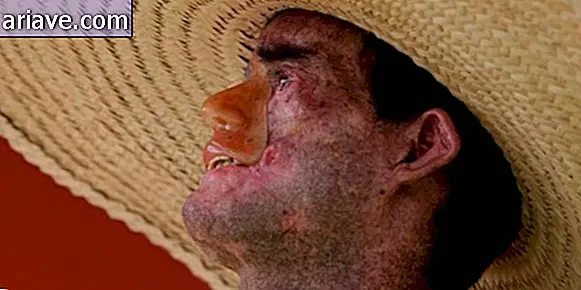This is Sparta! 10 truths about the life of the Spartans
Sparta was a city-state that survived between 900 BC and 192 BC, but its "legend" endures to this day. Despite being a classic chapter of History classes related to Ancient Greece, the life of the Spartans gained popularity again in 2006, when the movie "300" was released, starring Gerard Butler as Leonidas. Who doesn't remember the iconic scene of the bearded king shouting “This is Sparta!” Before kicking an enemy pit below, doesn't it?
In cinema, the work mixed historical elements with more than exaggerated, fictitious ones, such as Rodrigo Santoro's character, for example, which even existed, but not in the way portrayed on the big screen. Today we are going to talk about what really happened in the life of a person born in that war-oriented society.

Learn 10 truths about the golden times of Sparta:
1 - Coldly selected babies
The Spartans did not give much room for some concepts such as 'equality', 'social inclusion' and 'accessibility'. There, a boy was born to be another member of the strong Spartan army, so the movie "300" could have been named after another Hollywood hit: "Where the Weak Have No Time."
All babies were evaluated by a "Council of Elders" after birth and if they were physically disabled, they were simply discarded. Yeah, newborns were left to die simply because they didn't fit the standards of society. In some cases, these babies ended up being "adopted underground" by good souls who met them.

2 - Children do not play: they train!
If you passed the first Spartan assessment, you would have little time to live a child-friendly life as we think today. From the age of 5, all boys began training that would only intensify over time. Until the age of 11, the small Spartans lived in barracks where they learned some weapons handling and handling techniques that would be used later.

3 - Thick barks from small
Born to war, a Spartan boy was taught to suffer and survive under unfavorable conditions early on. Among the practices used to ensure resistance to future warriors were the removal of shoes, clothing and even food at times. That is, from the age of 12, the children were purposely subjected to cold and hunger.

4 - “Hand games” were encouraged
One of today's mommy clichés is the famous “hand play doesn't work, ” but in Sparta that thought made no sense at all. The boys were constantly encouraged and provoked to fight among themselves, especially those who were shy.

5 - Spartan mothers had to be “fitness”
With the constant need to strengthen her army, Sparta needed to have strong mothers, not only psychologically but also physically. Women also underwent athletic training so that they could give birth to as many healthy children as possible. Even modalities such as discus and dart throws, which are Olympic sports to this day, were taught to Spartan girls.

6 - Killing was a sign of respect
If killing someone in our society is one of the most punishable actions, then it was a sign that you were complete to serve the city state. At 18, the Spartan was already considered a soldier, but would only really be respected and would have the possibility to rise hierarchically in his military career after killing enemies. The Hilotas, who were practically slaves of Sparta, used to be the main targets of the young recruits.

7 - Seniors were tutors (and lovers)
For the Spartans, the relationship between young and old men was quite different from what we consider normal today. Child abuse was loose there in those days, and many elders acted as tutors for the younger ones. In addition to the art of war, the elderly taught in practice about love. That is, homosexuality was not taboo even for people who lived for over 2, 000 years.

8 - They had to know how to hit and catch
Within the Spartan military mindset, a good soldier needed to know how to attack, defend, and resist injury. Therefore, there was even a competition to prove the resistance of the participants. Teens were plagued in front of an altar built in honor of Artemis, a goddess linked to wildlife and hunting.

9 - Marriage? Only after 30 and with the "young"
Only after intense (and extensive) military training would the Spartan be allowed to seriously relate to a woman. For them, the ideal couple consisted of a 30-year-old man and a 20-year-old woman. If a relationship were discovered before these ages, both would be prohibited from seeing each other until the completion of the "war school."

10 - Once a soldier, always a soldier
If you were born as a man in Sparta, your only profession would be that of a soldier. And if the concept of retirement seems increasingly distant and unlikely to us, it was much worse for them. You would only be released from military service at the age of 60 - if you were alive by now, of course.












